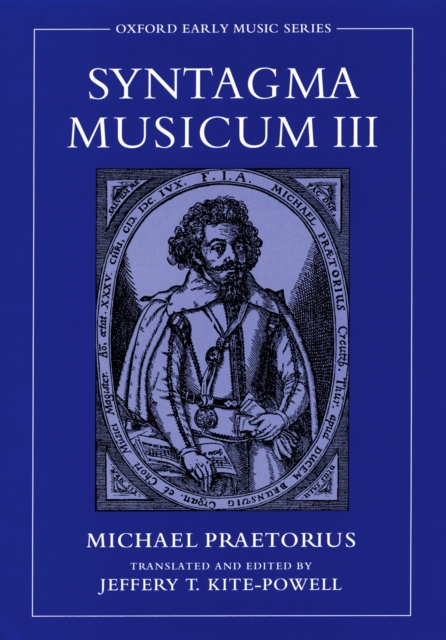
Description
Michael Praetorius (1571-1621) was one of the most versatile, wide-ranging, and prolific German composers of the seventeenth century.
Also important as a theorist, his Syntagma Musicum, penned around 1619, was originally planned in four parts.
He completed only three, with the first discussing the place of music in the church, while Volume II focused on musical instruments.
Volume III deals with terminology, theoretical issues, and performance practice. More than any other source from this period, Volume III provides the most thorough coverage of performance practice issues of the late sixteenth and early seventeenth centuries.
It offers detailed commentary about the performance of particular pieces of music, including many of Praetorius's own, as well as those by Lassus, Gabrieli, Monteverdi, and Sch?tz.
Throughout, Praetorius offers immensely practical insights on numerous topics such as the definition and classification of vocal forms, the names and characteristics of instruments, arrangement of large-scale works for multiple choirs, description of ligatures, use of proportions, time signatures, transposition, teaching the Italian manner of singing, the types of ornamentation used in Italy in the first two decades of the seventeenth century-and much more. Praetorius is the most often quoted and excerpted writer on performance practice.
In this translation, musicologist and early music practitioner Jeffery T.
Kite-Powell worked with notoriously difficult syntax to produce a definitive English edition of this important work.
For modern scholars, this volume is the preeminent source of contemporary information on performance practice for the late Renaissance and early Baroque periods.
This essential resource will enable performers to recreate the music of the period in a historically informed manner.
Information
-
Download - Immediately Available
- Format:PDF
- Publisher:Oxford University Press
- Publication Date:18/03/2004
- Category:
- ISBN:9780199722525
Other Formats
- Hardback from £100.00
- Paperback / softback from £25.99
Information
-
Download - Immediately Available
- Format:PDF
- Publisher:Oxford University Press
- Publication Date:18/03/2004
- Category:
- ISBN:9780199722525










